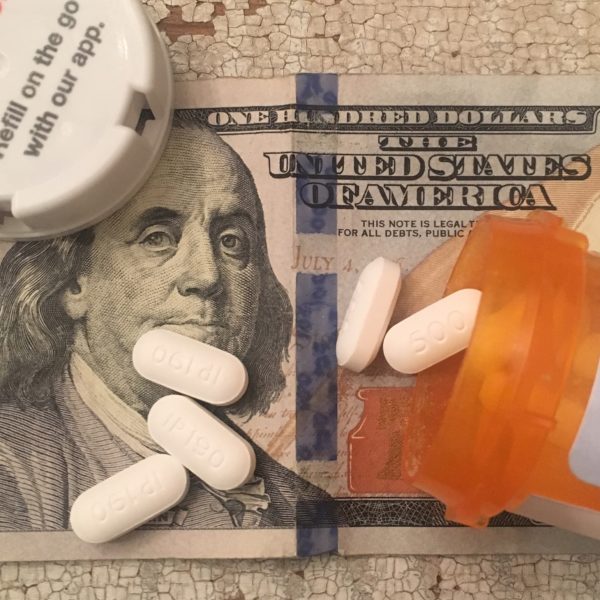On February 7, 2017, Shelinder Aggarwal, a former Huntsville, Alabama physician, who in 2012 was the highest volume prescriber of opioid painkillers in the United States, was sentenced to 15 years in prison for illegally prescribing controlled substances and committing health care fraud involving $9.5 million in unneeded and unused urine tests.
“Dr. Aggarwal used his medical license to generate tremendous profits by putting hundreds of thousands of pills on the street illegally,” Acting U.S. Attorney Robert Posey said. “As today’s sentence reflects, we are committed to prosecuting health care fraud and will seek severe penalties against any doctors who knowingly and illegally contribute to the growing epidemic of opioid drug abuse.”
Pill Mill Practices and Admittedly Killing Patients
Aggarwal was a pain management doctor who operated a pill mill, Chronic Pain Care Services, in Huntsville, Alabama. In 2012, about 80 to 145 patients a day visited Aggarwal’s clinic, with him seeing the majority of patients and writing all prescriptions. According to court documents, initial patient visits typically lasted five minutes or less, and follow-ups two minutes or less. Aggarwal did not obtain prior medical records for his patients, did not treat patients with anything other than controlled substances, often asked patients what medications they wanted and filled their requests, prescribed controlled substances to patients who he knew were using illegal drugs, and did not take appropriate measures to ensure that patients did not divert or abuse controlled substances. His plea agreement summarizes an interaction with a patient, which was captured on video. In the video, Aggarwal himself states that the DEA viewed him as the “biggest pill-pusher in North Alabama” and that many of his patients were “dropping like flies, they are all dying.”
According to the Prescription Drug Monitoring Program for Alabama (PDMP), which tracks the dispensing of controlled substances, as well as Medicare data, Alabama pharmacies filled about 110,013 of Aggarwal’s prescriptions for controlled substances in 2012. That would equal about 423 prescriptions per day if he worked five days a week. Based on this staggering amount of prescriptions, Aggarwal was responsible for prescribing about 12.3 million dangerous and addictive pills. The PDMP rated Aggarwal as the highest prescriber of controlled substances filled in Alabama in 2012, with the next highest prescriber writing a third as many prescriptions.
Medicare prescriber data also shows Aggarwal was the highest prescriber in the United States of Schedule II controlled substances under Medicare in 2012. Schedule II substances include the opioid painkillers oxycodone, oxymorphone, hydromorphone and morphine. Considering Aggarwal’s practices it is clear that many of these pills were medically unnecessary and many of Aggarwal’s prescriptions likely ended in the hands of addicts and were paid for by U.S. taxpayers. Prescribing such medically unnecessary and dangerous medication also qualifies as health care fraud and is actionable under the False Claims Act.
Drug Test Fraud
As to Aggarwal’s health care fraud scheme for which he pled guilty, Aggarwal admitted to requiring patients to undergo unreasonable and unnecessary urine drug tests that he did not need or use in their treatment. Aggarwal admitted that the tests he ran depended not on patients’ treatment, but on how much he could bill for tests. He often ignored urine test results showing patients were using illegal drugs.
“This defendant directly contributed to the opioid epidemic that is plaguing our nation,” FBI Special Agent in Charge Roger C. Stanton said. “He also cost taxpayers millions of dollars by fraudulently claiming government reimbursement for thousands of lab tests that he never used to treat patients. I applaud the work of my agents and our partners to shut down Aggarwal’s pill mill and hold him accountable for his actions.”
Between January 2011 and March 2013, urine drug tests accounted for about 80 percent of paid claims Aggarwal submitted to Medicare and Blue Cross Blue Shield, for a total reimbursement of $9.5 million. According to his plea agreement, “Aggarwal’s primary motivation for testing patients’ urine specimens, and submitting those claims for payment, was financial gain.
In addition to his 15 year prison sentence, Aggarwal will forfeit $6.7 million and his former clinic on Turner Street Southwest in Huntsville. U.S. District Judge R. David Proctor also ordered Aggarwal to pay $6.7 million in restitution to Medicare and Blue Cross Blue Shield of Alabama.
The case against Aggarwal is a criminal case. However, under the qui tam provisions of the False Claims Act, whistleblowers with information about similar fraud against the government may bring a civil case on behalf of the United States. If successful, the government can recover three times the amount the defendants fraudulently billed the government. The whistleblower, who originally filed the case, is entitled to 15-30% of the government’s recovery as well as their attorney’s fees.
To learn more about how the False Claims Act can be used to fight pharmaceutical fraud, click here.






Talk with an Expert
Frohsin Barger & Walthall
Call 205.933.4006 or
Send us a Message